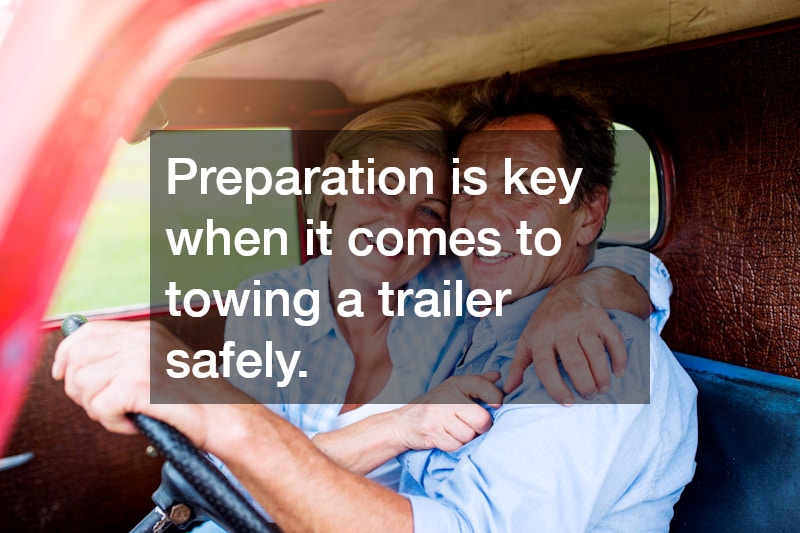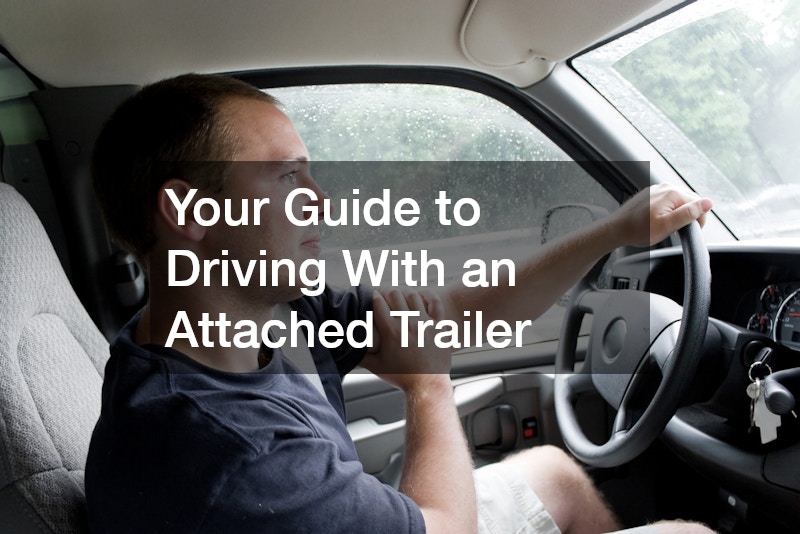Disclaimer: The Lifestyle Elf. This site provides fashion and lifestyle content for informational purposes only.
Before setting out on your journey, it’s vital to understand the basic principles of trailer attachment. A secure attachment ensures safety for both the driver and others on the road. Inspecting the connection between your vehicle and the trailer is a crucial step that should not be overlooked.
The standard components involved in attaching a trailer include the hitch, ball mount, coupler, and safety chains. Each component plays a significant role in maintaining stability and control.
For example, the ball mount and coupler should fit snugly to prevent any unwanted detachment.
Consult your trailer manufacturer‘s guidelines to ensure compatibility and compliance. The specifications provided by the manufacturer can help pinpoint the exact requirements for your towing setup. Neglecting these details can lead to serious consequences, including accidents or vehicle damage.
Preparing Your Vehicle and Trailer
Preparation is key when it comes to towing a trailer safely. Start by ensuring both your vehicle and trailer are in optimal condition. Check the tire pressure, lights, brakes, and fluid levels to prevent any mid-journey surprises.
Balance the load within the trailer to enhance driving performance. The weight distribution can greatly affect the handling of your vehicle, especially during turns and stops. A well-balanced trailer prevents swaying and improves fuel efficiency.
Adequate mirrors and visibility are also essential when towing a trailer. Consider installing extended mirrors to get a clear view of the trailer and the road behind you. This extra visibility aids in making lane changes, passing other vehicles, and reversing with greater confidence.
Driving Techniques for Safe Towing
Adjusting your driving techniques is crucial when towing a trailer, as the added length and weight require more caution. Begin by allowing more time for braking, as the trailer can add significant weight to your vehicle. Use lower gears when going downhill to maintain control and reduce strain on your brakes.
Keep a safe following distance from other vehicles to provide ample reaction time. The increased weight can extend stopping distances considerably, making it vital to maintain a larger buffer zone. Additionally, avoid sudden maneuvers that could cause the trailer to sway or lose alignment.
Practice makes perfect when it comes to reversing a trailer. It is a skill that requires patience and precision. Consider practicing in an empty parking lot to get a feel for how your trailer responds to steering inputs, ensuring a smoother experience when you’re on the road.
Adhering to Regulations and Safety Measures
Familiarize yourself with local and national regulations concerning trailer towing. Laws can vary significantly from state to state, affecting everything from speed limits to required safety equipment. Heeding these regulations is essential to avoid fines and ensure the safety of all road users.
Many jurisdictions mandate additional safety features, such as trailer brakes and breakaway systems, depending on the trailer weight. Verify that your setup conforms to these regulations to avoid any legal complications. Safety chains, for instance, are a fail-safe in case of hitch failure, and ensuring their proper use is a legal obligation in many areas.
Regular maintenance is another critical aspect of towing safety. Schedule routine check-ups with your trailer manufacturer or a reputable mechanic to keep both your vehicle and trailer in top condition. Ensuring all components are functioning correctly can prevent costly repairs and potential accidents.
Handling Emergencies While Towing
Even with meticulous preparation, emergencies can occur, and being ready is paramount. Knowledge of basic repair techniques like changing a tire or troubleshooting electrical issues can make a significant difference. Keeping a well-stocked emergency kit ensures you’re prepared for any situation that arises on the road.
Stay calm and composed in the face of an unexpected situation, such as trailer sway or tire blowouts. Sudden movements should be avoided as they can exacerbate the problem. Gradually slow down and steer to a safe location where you can assess and address the issue at hand.
Enroll in a towing safety course offered by your local trailer manufacturer or driving school. These courses provide valuable hands-on experience and safety tips specifically designed for towing scenarios. Being well-prepared can turn a potential crisis into a manageable situation.
.


